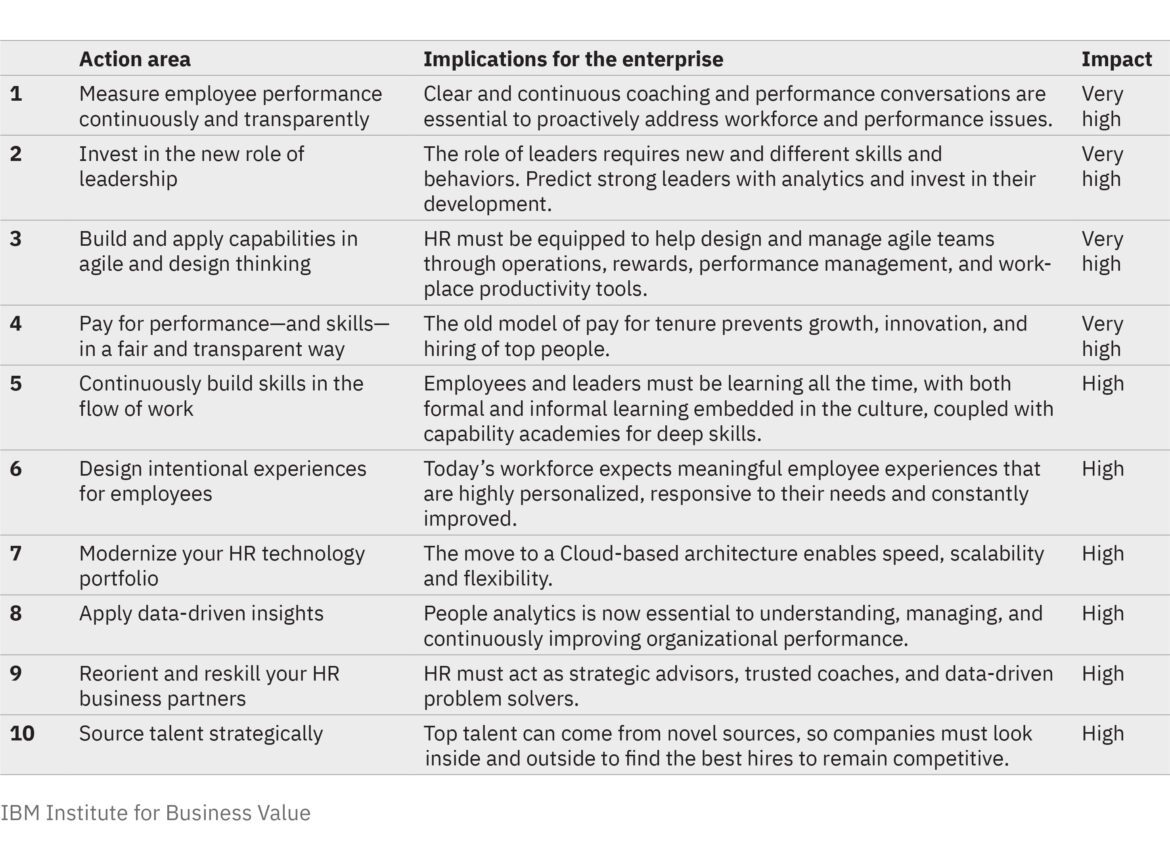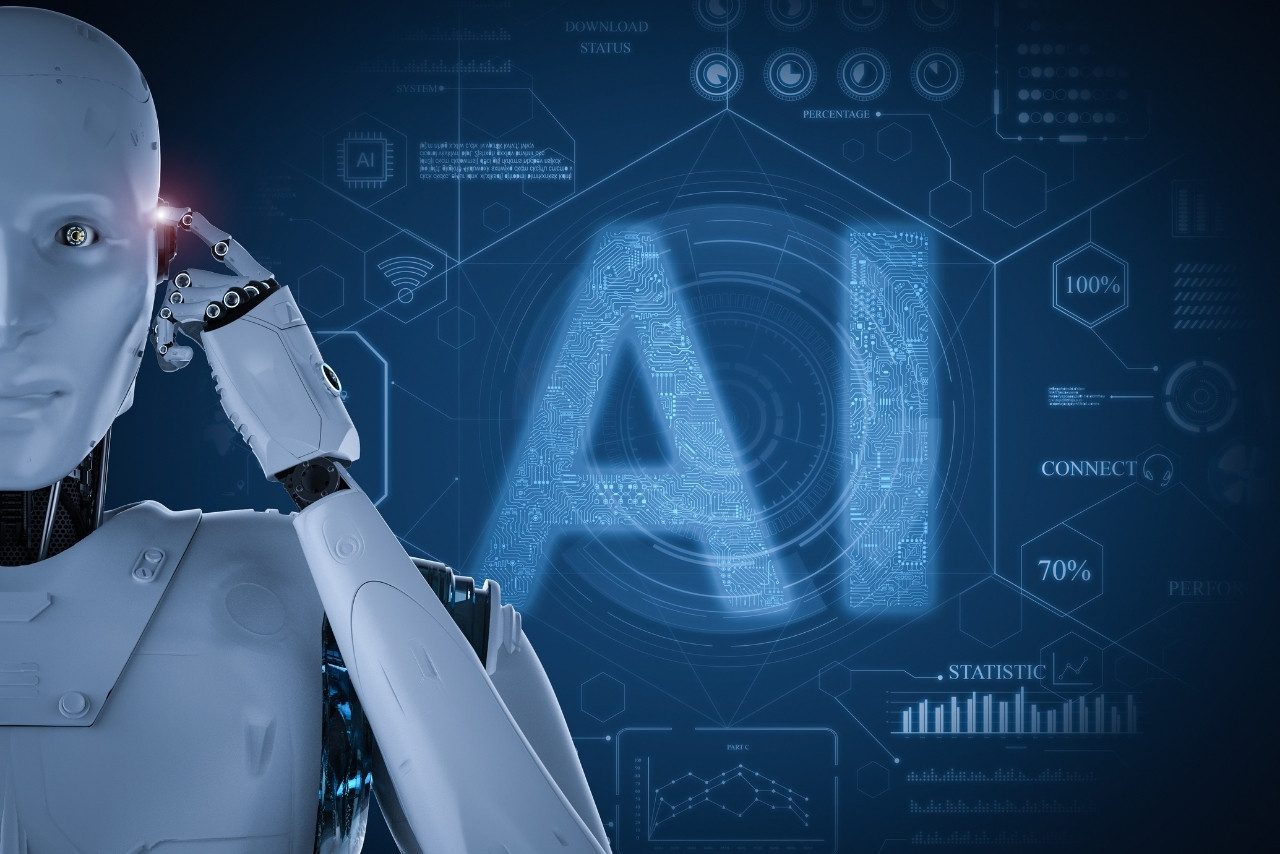
WHY SHOULD YOU CARE?
Technology and Artificial Intelligence (AI) have brought in mixed reactions concerning job security and HR as a profession has not been spared.
A recent report by the World Economic Forum (WEF) however gives a picture that technology and Artificial Intelligence (AI) will make HR more efficient and effective.1
At the Digital HR Innovation Summit back in 2019 in Amsterdam, we learned that at that time only 6% of companies were actively using AI in HR globally.2 Most of the organizations were at an exploratory stage where they were learning whether AI works for them or not.
PWC’s recent report confirms, the pandemic has drastically accelerated the digital transformation agenda through the
integration of disruptive technologies. Digital transformation has become an increasingly hot topic and has posed questions around the role of HR moving forward. Businesses are now looking to reduce costs by any means, putting HR under pressure to create more value with less resources – and `AI is here to boost productivity.
According to a recent report by IBM the “HR function will become more automated and AI-driven, more data-centric and
consultative, and more agile than before. However, achieving this future vision is not easy (see Figure 2). Only 30 percent of companies tell us they are living some of the principles today, and only 1 in 10 are leading in all five.”

Benefits of AI in HR
HR can now concentrate more on delivering value
Using the 80-20 rule, 80% of HR work is spent doing administrative work such as filing, shortlisting candidates, and communicating with employees. This has often led to HR failing to execute its key role as a strategic partner to the business. Rightfully as Professor, Dave Ulrich points out, HR delivers value through talent, leadership, and capability.4 By the use of Artificial Intelligence in HR, more time can be spent concentrating on delivering value through focusing on talent, leadership, and capability whilst AI handles the administrative work.
Cost savings
The use of AI can result in significant savings to the business. In the process, this increases revenue per employee and profit per employee. A study that was done by the Hackett Group indicates that the use of digital technology has helped companies to cut labor costs by 29%.5 In 2008, Bank of America commenced plotting out a digital strategy that led to cutting 10 000 jobs over less than a decade.6 By cutting on employee numbers whilst maximizing revenues and bottom-line business performance, CHROs can increase revenue per employee and profit per employee. At the HR congress of 2019, we got to learn that Ernest and Young have an AI-driven chatbot in place of over 250 000 employees and achieving a cost-saving of $3.5 million. 2
Data-driven decision
The use of AI in HR enables companies to be more data-driven. These days HR is no longer being done based on gut feeling but through data. There has been a growing interest for HR to be able to measure its activities through the use of numbers. AI helps HR to be able to make decisions that are backed by data and insights.
Speed and capacity
The human brain is often limited in terms of speed and capacity. Quite often human beings struggle with multitasking and handling complex situations without making use of electronic tools such as calculators, computers, and software.
Improved talent management practices
At the 2019 Digital HR Innovation Summit, we got to learn about how IBM was deploying AI tools that give an understanding of compensation decisions.2 We learned that AI gives suggestions on compensation and a human being makes the final decision. AI gives information on the right capabilities for a given role and position. This information is useful for talent development, deployment, and performance management practices. The IBM Watson is a very good example of how AI can help in terms of quality of decision-making and information processing.
The other side of the coin in regards to AI in HR.
Data privacy and resistance
However, the use of HR has been meeting some forces of resistance among the HR and business communities. The first key issue that World Economic Forum points out is that of data privacy, “The past five years, meanwhile have brought increasing awareness of key challenges with AI systems, especially data privacy concerns and the potential for the systems to encode human biases.” 1These concerns are because HR decisions have a huge impact on people’s lives. Henceforth the recruitment industry is regulated by governments and HR practice boards.
Machines might not be as emotionally intelligent as human beings
WEF points out that Artificial Intelligence as computer machines lack emotional intelligence as that of human beings. They might not be as emotionally intelligent as human beings.7 They cannot cry. Attempts to encode emotions can be done but they do not replace human emotion. The ability to exercise emotional intelligence has been a critical issue that has affected the adoption of AI in HR. Research by CGS indicates that 86% of consumers prefer to interact with a human agent than with a chatbot.8 Chatbots and AI tools are usually able to comprehend what they are programmed to do. Unless they have learned about something, these chatbots and AI tools often struggle to deal with issues.
Transparency and accountability
The other issue that was raised by the World Economic Forum (WEF) is that of transparency and accountability. If an AI tool makes a mistake, who can be sued for that mistake. AI tools are not legal personas that can be sued on their own. Unlike human beings, if human beings make a mistake, they can be held accountable for their decisions.
Based on the studies by the World Economic Forum (WEF), Artificial Intelligence and Technology is not necessarily replacing HR. Rather Artificial Intelligence is there to enable HR to be more efficient and effective in delivering business value.
There is no better way to conclude as it is suggested by Emily He, SVP, Human Capital Management Cloud Business Group at Oracle: “The relationship between humans and machines is being redefined at work, and there is no one-size-fits-all approach to successfully managing this change,” she said. “Instead, organizations need to partner with their HR organization to personalize the approach to implementing AI at work in order to meet the changing expectations of their teams around the world.”
References:
1Human-Centred AI for HR: the State of Play and the path Ahead White paper December 2021 by World Economic Forum
https://www3.weforum.org/docs/WEF_Human_Centred_AI_for_HR_2021.pdf
Ram Charan was right, HR is Splitting, Mihaly Nagy, The HR Congress https://www.youtube.com/watch?v=VGql_zAaFpc
3Future of Jobs Report 2020 October 2020 by World Economic Forum
https://www3.weforum.org/docs/WEF_Future_of_Jobs_2020.pdf
4Do Not Split HR- At Least Not Ram Charan’s Way by Dave Ulrich, Harvard Business Review
https://hbr.org/2014/07/do-not-split-hr-at-least-not-ram-charans-way
5IT Organizations Can Achieve Breakthrough Improvements By Embracing Digital Technology By The Hackett Group https://www.thehackettgroup.com/news/it-organizations-can-achieve-breakthrough-improvements-by-embracing-digital-technology/
6Bank of America CEO Moynihan says he cut jobs equal to the workforce of Delta Air Lines By Hugo Son, CNBC
https://www.cnbc.com/2018/10/17/bank-of-america-ceo-brian-moynihan-on-cutting-100000-jobs.html
7Human-Centred Artificial Intelligence for Human Resources: A toolkit for Human Resources Professionals December 2021 by the World Economic Forum
https://www3.weforum.org/docs/WEF_Human_Centred_Artificial_Intelligence_for_Human_Resources_2021.pdf
8CGS Survey Reveals Consumers Prefer a Hybrid AI/Human Approach to Customer Service. Is there Chatbot Fatigue? By CGS, CGS
https://www.cgsinc.com/en/resources/2019-CGS-Customer-Service-Chatbots-Channels-Survey
Written by: Mihaly Nagy
Employee Experience Future of Work HR Strategy HR Tech Strategy & Transformation
Previous post

- 59
labelNews today2022.02.14.
SHORT-TERM ABSENTEEISM PEAKED IN JANUARY
HR Square reports that more than half of the employees were more often briefly absent due to illness in January 2022 than in the same month in 2019. Compared to [...]
Similar posts

labelArticles today2024.10.21.
The success-recipe to build agile and future-ready organizations in 2025 and beyond








Post comments (0)